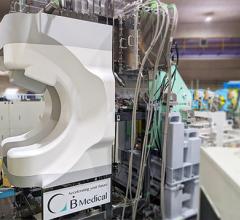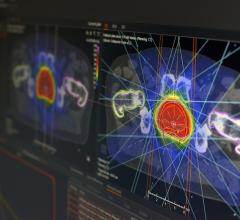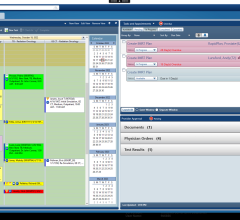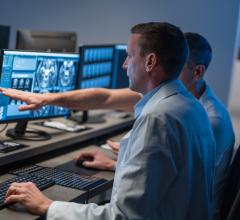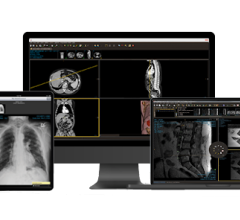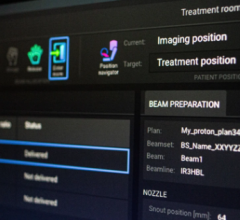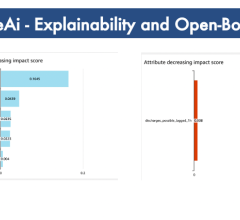
Hans Langendijk, chair of the Department of Radiation Oncology at UMCG.
University Medical Center Groningen (UMCG) is one of the largest hospitals in the Netherlands. The hospital provides world-class patient care and is engaged in cutting-edge scientific research and medical education. UMCG is a leading cancer center and will soon open a new state-of-the-art proton therapy center.
UMCG is one of the first pioneers of RayCare,* RaySearch’s next-generation oncology information system (OIS). UMCG and RaySearch have been developing and testing RayCare in close partnership, and the work includes integration with UMCG’s Epic medical records system. UMCG expects to be using RayCare clinically in 2018.
Prof. Hans Langendijk, chair of the Department of Radiation Oncology at UMCG, says the center has a vision that the clinical introduction of new and emerging radiation technologies should be more evidence-based. “This requires a model-based approach within rapid-learning healthcare systems,” Langendijk said. “RayCare is the electronic oncology information system that fully supports this new approach. It will facilitate full integration of clinical practice and continuous learning through the development of user-friendly and efficient software.”
Unifying Data
Effective data handling is essential for a rapid-learning healthcare system, and this is a key strength of RayCare. “Currently,” Langendijk said, “radiation oncology departments work with different software systems and interfaces. Consequently, not all patient information is accessible to everyone involved in the treatment process. This situation is inefficient and may jeopardize patient safety. In addition, learning systems will continuously improve radiotherapy quality and lead to better local control with fewer side effects, eventually resulting in more surviving patients with better quality of life. These benefits fit perfectly with the UMCG’s main research theme: Healthy Aging.”
Langendijk added that integration of rapid learning into routine clinical practice can only be successful if it does not take much extra time from radiation oncologists and other healthcare providers. “Data capture, storage and extraction should be made easy and efficient. This is a major challenge and requires a multidisciplinary approach in the development, maintenance and continuous improvement of an OIS.”
Patient Focus
Ricardo Franke, staff advisor patient logistics at UMCG and coordinator for the RayCare implementation, said RayCare will enable UMCG to work in a truly patient-centered way. “It brings everything together and will support treatment decision-making between photon and proton therapy. RayCare will streamline workflows and support an integrated approach to treatment. There are huge advantages in making all kinds of data easily accessible in one system – both for treatment and for research. RayCare will give us one point of control over everything and remove many of the manual steps. The workflow engine creates tasks automatically, based on a wide variety of triggers. For example, when an MRI is sent to RayCare, a task is created automatically for the doctor to review the image. We will no longer have to create these tasks manually.”
Smooth Workflow
Efficiency is key for a major center such as UMCG. “Many patients come from other facilities in Holland and Germany,” Franke said. “It’s essential to have the right information for the right patient at the right time, and we need to ensure short response times to referring institutes. When a patient is referred, we carry out a treatment planning comparison to determine whether proton therapy might be the better approach. Speed is of the essence, so we need a system that can automate procedures. RayCare will also be our booking agent and will take care of the whole process.”
Franke said the project is progressing well. “We are testing the latest prototype, refining functionality and working on the integration of RayCare and Epic. This includes gathering new usage stories regarding tumor board management and the PACS system, which will be integrated into RayCare. We wanted a central repository for all images, with the possibility to label and cross-reference for clarity. RaySearch created something that closely matches our needs; we will be able to send images from all kinds of systems and make them available in a highly structured way.”
Intuitive Interface
The response from clinical staff at UMCG has been overwhelmingly positive. “When we’ve presented RayCare, there has almost been disbelief that this could be real!” Franke said. “People are delighted that it works so intuitively, matching the way they want to do things. It’s a breath of fresh air compared to most software systems they are used to working with.”
He adds that the process has been very smooth. “The relationship with RaySearch is a close collaboration. We have a partner who understands our needs and wishes and has the capability to translate them into new functionality. Many colleagues from different disciplines will use the system, so the requirements are diverse and wide-ranging. Our excellent ongoing communication with RaySearch is a key success factor.”
*Regulatory clearance required in some markets
Case study supplied by RaySearch.


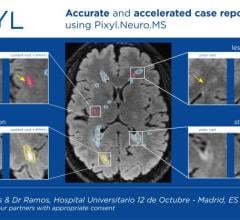
 December 05, 2023
December 05, 2023 
